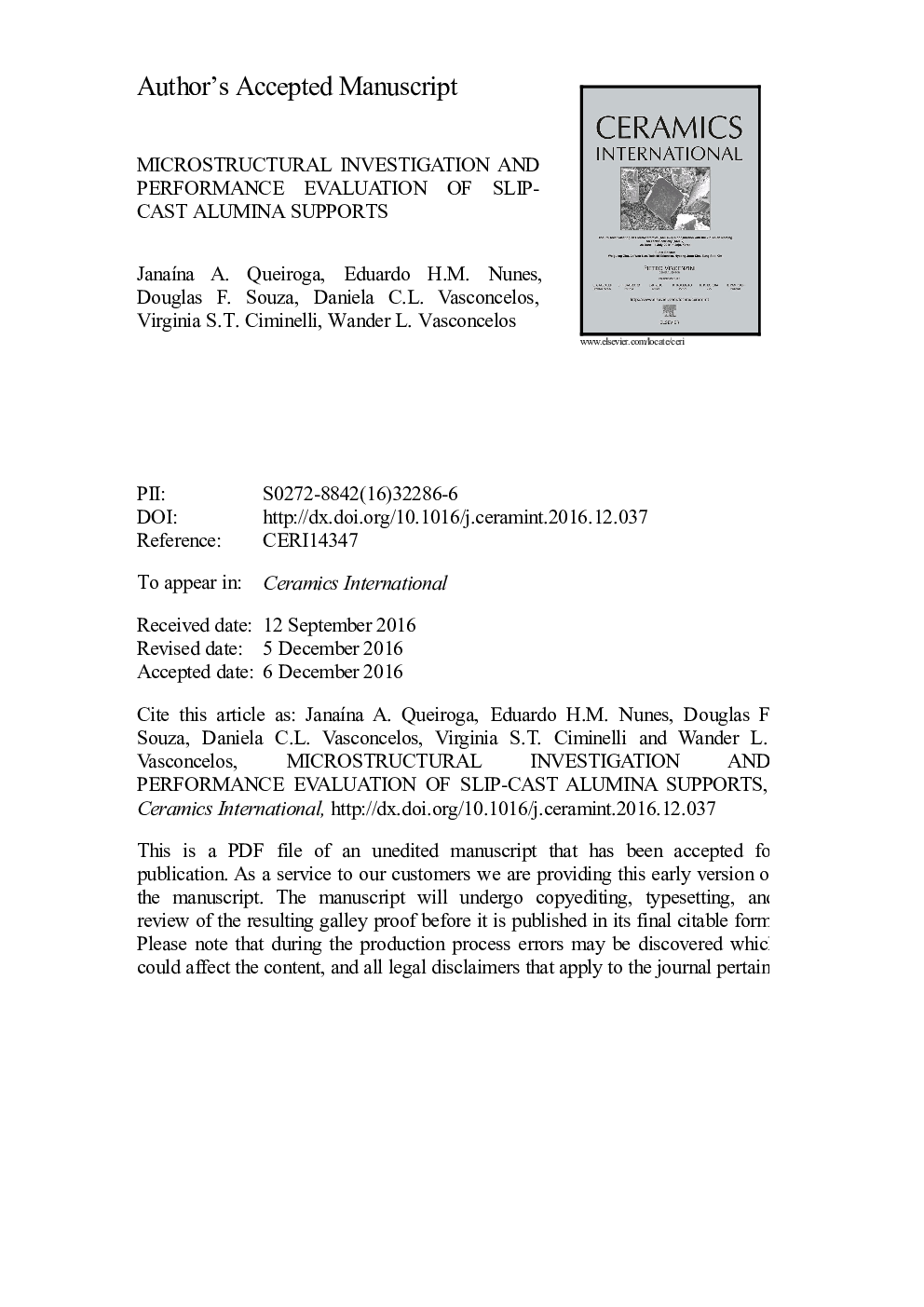| Article ID | Journal | Published Year | Pages | File Type |
|---|---|---|---|---|
| 5438939 | Ceramics International | 2017 | 27 Pages |
Abstract
In this work we successfully obtained slip-cast alumina supports with tubular shape. It was investigated the influence of both the starting powder particle size and heat treatment program on the pore structure and water permeability of the prepared materials. This study is supported by a series of experimental tests, including Archimedes method, mercury intrusion porosimetry, scanning electron microscopy, and cold crushing tests. We observed that the heat treatment temperature exhibited a more significant effect on the porosity than the sintering time. It was noticed that, in a general way, the higher the sintering temperature, the smaller the porosity and the larger the apparent density of the prepared materials. In addition, the raise of the sintering temperature from 1100 to 1500 °C increased the cold crushing strength of the tested samples. This behavior was not observed for F2, which seems to be related to the poor sinterability of the starting alumina powder used in its preparation. Among the samples prepared in this work, F2 showed the highest water permeability, followed by F3 and F1. The water permeation behavior of these materials is discussed on the basis of their mean pore size, porosity, genus per unit volume, and pore network tortuosity.
Related Topics
Physical Sciences and Engineering
Materials Science
Ceramics and Composites
Authors
JanaÃna A. Queiroga, Eduardo H.M. Nunes, Douglas F. Souza, Daniela C.L. Vasconcelos, Virginia S.T. Ciminelli, Wander L. Vasconcelos,
